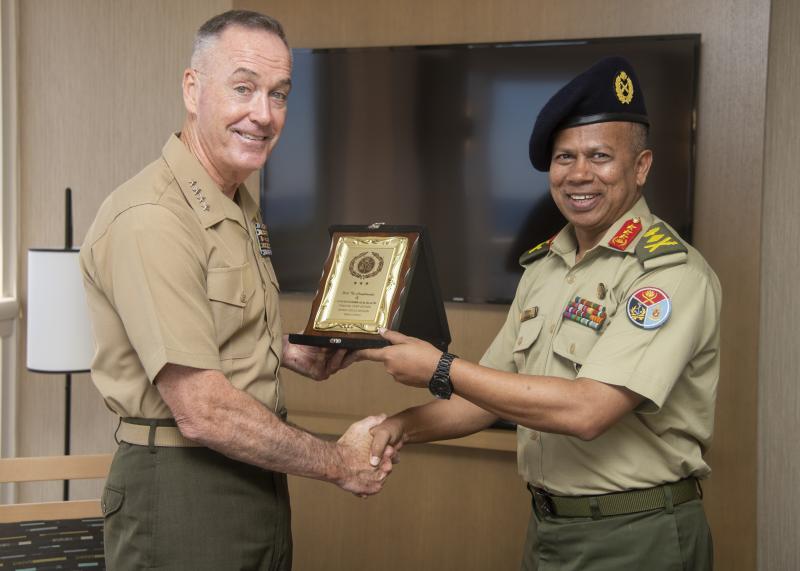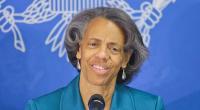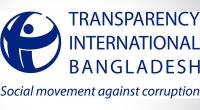 The US has increased its military engagement with Bangladesh as part of its Indo Pacific Strategy.
The US has increased its military engagement with Bangladesh as part of its Indo Pacific Strategy.
On Sept 10, Chairman of the Joint Chiefs of Staff Gen Joseph F. Dunford, Jr. met with his counterpart Bangladesh Principal Staff Officer Lt. Gen. Mahfuzur Rahman in Honolulu, Hawaii.
“The two senior military leaders discussed ways to strengthen the relationship and improve interoperability between the two militaries, as well as other issues of mutual interest,” office of Chairman of the Joint Chiefs of Staff said.
“Bangladesh is a valued partner in South Asia. A strong US-Bangladesh partnership is essential to maintaining stability and a free and open Indo-Pacific,” Dunford’s office said after the meeting in Hawaii on Sept 10.
The Trump Administration said that it wants to make sure that Bangladesh, which US described as a key element, doesn't feel forced to accept any deals or projects that would undermine its national sovereignty.
“Bangladesh is a very strategic country for us. Bangladesh is a key element of our Indo-Pacific Strategy,” a State Department official told Bangla Tribune after the conclusion of last week’s Trade and Investment Cooperation Framework Agreement (TICFA) in Washington during which the two governments pledged their commitment to deepen their engagement and grow their trade and economic ties.
“As part of Indo-Pacific strategy, we want to promote a rules-based system, where nobody gets an unfair competitive advantage through corrupt practices or undermining labour rights or not taking care of protecting the environment,” the official reiterated the stated policy of the Trump Administration.
“These are shared values for Bangladesh and we want to make sure that it has choices in terms of projects that it pursues and its economic development,” the official said.
“We want to ensure that it doesn't feel forced to accept any deals or projects that would undermine its national sovereignty,” said the State Department official in response to a question.
On Sept 13, Assistant US Trade Representative for South and Central Asian Affairs Mark Linscott and Bangladesh Commerce Secretary Shubhashish Bose co-chaired TICFA meeting in Washington DC.
Describing the meeting as “very cordial, very co-operative,” the official said that three issues were discussed – market access, improving the business climate, and the issue of labour rights and factory safety.
On factory safety “there is still more work to be done,” the official said in response to a question. During the meeting, the US in particularly noted its concerns on overall labour reform.
In 2017, Bangladesh and the United States had $7.2 billion (two-way) goods trade.
According to a State Department fact sheet, Bangladesh exported $5.7 billion worth of products, primarily apparel and textiles, to the US in 2017, making the US the single largest market for Bangladeshi products in the world.
In turn, US exports to Bangladesh, which consisted largely of agricultural products (grains and cotton) and machinery, amounted to $1.4 billion, up 63 percent from the previous year, but still resulting in a US trade deficit of $4.2 billion.
The US is also currently the largest source of foreign direct investment in Bangladesh. At the end of 2017, it accounted for 23 percent of the stock of FDI in Bangladesh. Chevron is the single largest foreign investor, producing some 55 percent of Bangladesh’s domestic natural gas.
Bangladesh, the State Department says, is the largest recipient of US assistance in Asia outside of Afghanistan and Pakistan. US assistance fosters engagement with Bangladesh – helping to grow more food, build more roads, and train more skilled teachers, health care providers, and soldiers, according to the fact sheet.


